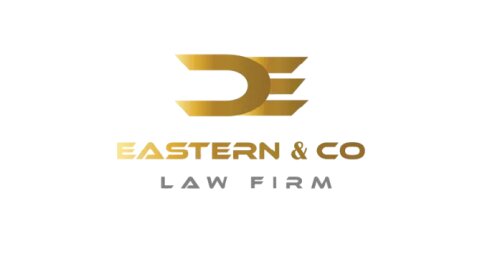Best Real Estate Due Diligence Lawyers in Dokki
Share your needs with us, get contacted by law firms.
Free. Takes 2 min.
Free Guide to Hiring a Real Estate Lawyer
List of the best lawyers in Dokki, Egypt
1. About Real Estate Due Diligence Law in Dokki, Egypt
Dokki is a central district in Giza Governorate with a mix of older apartment buildings, villas, and new developments. Real estate due diligence in Dokki focuses on confirming ownership, verifying the absence of encumbrances, and ensuring the property can be lawfully transferred. The process also involves checking building permits, occupancy approvals, and compliance with local zoning rules.
In practice, a qualified advocate or real estate attorney in Dokki coordinates a document check with the Real Estate Publicity Registry (Sijil al-Aqar) and the relevant city or governorate authorities. This helps prevent post-closing surprises such as hidden liens, disputed ownership, or invalid titles. Consistency across documents reduces the risk of costly disputes after purchase or sale.
Key elements of due diligence typically include title verification, encumbrance searches, building permit status, occupancy certificates, and contractual scrutiny. Egypt relies on formal registration of ownership to transfer title, making registration a central milestone in any Dokki real estate transaction. See official legislation portals for the governing rules and procedures.
Real estate ownership transfers in Egypt require registration in the Real Estate Publicity Registry (Sijil al-Aqar). Source: Egyptian Legislation Portal.
For residents of Dokki, engaging an advocate early in the process can help tailor due diligence to local practices, including timelines at the Cairo and Giza registries and court-related clarifications where needed. This guide provides a structured overview to support informed decisions and reliable outcomes.
Egyptian Legislation Portal and Ministry of Justice are authoritative places to verify exact laws and procedures that govern real estate due diligence in Dokki and across Egypt.
2. Why You May Need a Lawyer
Engaging a lawyer who specializes in real estate due diligence can save time and money when buying, selling, or financing property in Dokki. Below are concrete scenarios that commonly require legal counsel in this district.
- Buying a Dokki apartment with an unclear title chain. A buyer discovers a chain of ownership gaps or undocumented heirs. An advocate orders title searches and verifies the chain across the Real Estate Publicity Registry to ensure a clean transfer.
- Purchasing a property with existing mortgages or liens. A seller signs a transfer before disclosing encumbrances. A lawyer confirms there are no active mortgages or liens and negotiates release or settlement before closing.
- Dealing with inherited real estate in Dokki. Inheritance disputes or multiple heirs complicate the transfer. An attorney helps assemble probate documents, resolve conflicting titles, and secure a clear deed in the registry.
- Buying a building with older permits or construction violations. Building permits or occupancy certificates may be missing or outdated. A solicitor coordinates remediation, permits updates, and registry declarations to avoid nullifying the transfer.
- Engaging a developer for off-plan or new construction in Dokki. The project may require municipal approvals and registered developer status. A lawyer reviews contracts, warranties, and ensures registration of the completed project with the appropriate authority.
- Financing with a local bank or mortgage lender. Lenders require clear title and encumbrance checks. An advocate coordinates the title package, mortgage documents, and ensures the collateral is valid and enforceable.
In Dokki, a local advocate can also help navigate municipality requirements, registration queues, and language nuances in contracts and deeds. Practicing lawyers in this area routinely liaise with the Real Estate Publicity Registry and governorate offices to advance timely closings.
3. Local Laws Overview
Two to three foundational laws and regulations consistently shape Real Estate Due Diligence in Dokki, Egypt. Below are the key statutes by name with a brief note on their scope and practical impact. Always verify the exact text and any amendments on official portals.
- Egyptian Civil Code - Governs property rights, contracts, leases, and transfer of ownership within civil transactions. It provides the framework for how title and ownership are created and transferred. Effective from 1948, with subsequent amendments.
- Real Estate Publicity Law (Real Estate Publicity Registry) - Regulates registration and publicity of real estate titles, liens, and transfers in the Real Estate Publicity Registry (Sijil al-Aqar). Registration is typically a prerequisite for enforceability of transfers in Egypt. Origins in mid-20th century, with modern amendments.
- Mortgage and encumbrance principles under the Civil Code framework - Addresses creation, priority, and enforcement of mortgages and other encumbrances affecting real property. These rules influence how lenders view collateral and how encumbrances are cleared during transfers. Integrated within the Civil Code and related regulatory updates.
For precise text, dates, and amendments, consult official sources. The Egyptian Legislation Portal provides the authoritative versions, and the Ministry of Justice publishes administrative guidance on registrations and filings. Legislation Portal | Ministry of Justice.
4. Frequently Asked Questions
What does due diligence cover in Dokki real estate deals?
Due diligence covers title verification, encumbrances, building permits, occupancy certificates, and contract terms. It also assesses developer credibility and regulatory compliance. An advocate coordinates document collection and review.
What is the Real Estate Publicity Registry in Egypt?
The Real Estate Publicity Registry is the official registry for property titles and transfers in Egypt. It records ownership changes and encumbrances, making registration essential for enforceable transfers.
How do I start a title search in Dokki?
Begin by hiring a Dokki-based real estate advocate. They request title deeds, registry extracts, and mortgage statements from the Real Estate Publicity Registry and review them for gaps or liens.
What documents should I gather for due diligence in Dokki?
Obtain the title deed, registry extract, building permits, occupancy certificate, utility approvals, and the sale contract. Your lawyer may also request tax receipts and parent seller documents.
How long does a typical title verification take in Dokki?
Title checks can take 2 to 6 weeks, depending on document availability and registry processing times. A lawyer can often expedite by pre-submitting requests.
Do I need a local lawyer in Dokki, or can I use a national firm?
Local Dokki lawyers understand district-specific procedures and registry offices. A local advocate can streamline filings and interpret municipal notices more efficiently.
What costs should I expect for due diligence in Dokki?
Costs include lawyer fees, registry search fees, and potential third-party reports. Expect a range based on property type, complexity, and services required.
Can a seller disclose all encumbrances before signing?
Sellers should disclose known encumbrances, but due diligence is necessary to uncover hidden liens or disputes. A lawyer conducts independent searches to confirm disclosures.
How is building permit compliance checked in Dokki?
Your advocate verifies permit status with the relevant governorate or municipality. They look for valid permits, deviations, and compliance with zoning laws.
What is the difference between ownership title and possession in Egyptian real estate law?
Ownership title records legal rights to the property. Possession relates to actual occupation or use. A deed should reflect ownership, while occupancy is governed by separate documents.
Do I need title insurance for a Dokki property?
Title insurance is not as common in Egypt as in some other markets, but it can be beneficial. A lawyer explains coverage options and risk implications for your deal.
Is an English-language sale contract admissible in Dokki courts?
Contracts are typically executed in Arabic in Egypt. An English version may be used for understanding, but an Arabic deed is usually required for registration and enforcement.
5. Additional Resources
Below are official resources that provide authoritative guidance on real estate law and registration in Egypt. They are useful when researching due diligence requirements for Dokki transactions.
- Egyptian Legislation Portal - Central repository for enacted laws, amendments, and official texts. https://www.legislation.gov.eg
- Ministry of Justice (Egypt) - Federal authority overseeing real estate registration procedures, judicial processes, and related public notices. https://moj.gov.eg
- General Authority for Investment and Free Zones (GAFI) - National agency for investment regulation and property-related due diligence in investment projects. https://www.gafi.gov.eg/English/Pages/Home.aspx
6. Next Steps
- Define your goals and budget. Determine whether you are buying for residence, investment, or development. Set a realistic budget including closing costs and fees. This helps the lawyer tailor due diligence to your needs.
- Find a Dokki-based real estate advocate. Look for lawyers with documented local experience in title searches and registry filings. Ask for references and success metrics from Dokki transactions.
- Collect preliminary documents. Request the seller’s title deed, registry extracts, and building permits. Ensure you have a copy of the sale contract for review.
- Authorize a formal title search and encumbrance check. Your advocate requests official extracts from the Real Estate Publicity Registry and mortgage statements. Review results together before proceeding.
- Review permits and occupancy status. Have your lawyer verify building permits, deviations, and occupancy certificates with the local governorate office. Address any violations before signing.
- Negotiate contract terms based on findings. If issues arise, seek amendments or price adjustments. Your advocate helps draft protective clauses and warranties.
- Complete the transfer and register the deed. After satisfactory due diligence, finalize the contract and submit for registration at the relevant registry. Obtain the new title in your name.
Lawzana helps you find the best lawyers and law firms in Dokki through a curated and pre-screened list of qualified legal professionals. Our platform offers rankings and detailed profiles of attorneys and law firms, allowing you to compare based on practice areas, including Real Estate Due Diligence, experience, and client feedback.
Each profile includes a description of the firm's areas of practice, client reviews, team members and partners, year of establishment, spoken languages, office locations, contact information, social media presence, and any published articles or resources. Most firms on our platform speak English and are experienced in both local and international legal matters.
Get a quote from top-rated law firms in Dokki, Egypt — quickly, securely, and without unnecessary hassle.
Disclaimer:
The information provided on this page is for general informational purposes only and does not constitute legal advice. While we strive to ensure the accuracy and relevance of the content, legal information may change over time, and interpretations of the law can vary. You should always consult with a qualified legal professional for advice specific to your situation.
We disclaim all liability for actions taken or not taken based on the content of this page. If you believe any information is incorrect or outdated, please contact us, and we will review and update it where appropriate.










